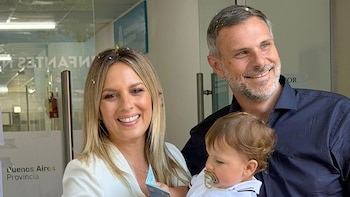The International Paralympic Committee (IPC) has announced that Turkish powerlifter Izzettin Kanat has been suspended for two years for an Anti-Doping Rule violation and consequently will no longer be competing at the upcoming Rio 2016 Paralympic Games.
Kanat returned an adverse analytical finding for meldonium in a urine sample provided on 17 February 2016 after he had competed in the men’s up to 80kg class at the 7th FAZZA IPC Powerlifting World Cup in Dubai, UAE.
This substance is included on the World Anti-Doping Agency (WADA) 2016 Prohibited List under the category S4.5 Hormone and Metabolic Modulators and is prohibited at all times, both in and out of competition.
As a result of his violation, Kanat will be ineligible from competition for two years from 17 February 2016, the date of the test, until 16 February 2018.
All Kanat’s results obtained from the date of the test and onwards will be disqualified including forfeiture of any medals, points, records and prizes. This includes the bronze medal he won in Dubai on 17 February. This medal will now be presented to Great Britain’s Michael Yule who originally finished fourth.
The principle of strict liability applies to anti-doping matters. Therefore, each athlete is strictly liable for the substances found in his or her sample, and that an anti-doping rule violation occurs whenever a prohibited substance (or its metabolites or markers) is found in his or her bodily specimen, whether or not the athlete intentionally or unintentionally used a prohibited substance or was negligent or otherwise at fault.
As a signatory of the World Anti-Doping Code (WADC), the IPC remains committed to a doping free sporting environment at all levels. The IPC, together with the International Federations and the National Paralympic Committees, established the IPC Anti-Doping Code to prevent doping in sport for Paralympic athletes, in the spirit of fair play. The IPC Anti-Doping Code is in conformity with the general principles of the WADC.
For more information, please contact:
Craig Spence
IPC Director of Media and Communications
E-mail: craig.spence@paralympic.org
Tel:+49-228-2097-230
20 Years at #1: Your best source of news about the Olympics is www.aroundtherings.com, for subscribers only
Últimas Noticias
Sinner-Alcaraz, the duel that came to succeed the three phenomenons
Beyond the final result, Roland Garros left the feeling that the Italian and the Spaniard will shape the great duel that came to help us through the duel for the end of the Federer-Nadal-Djokovic era.
Table tennis: Brazil’s Bruna Costa Alexandre will be Olympic and Paralympic in Paris 2024
She is the third in her sport and the seventh athlete to achieve it in the same edition; in Santiago 2023 she was the first athlete with disabilities to compete at the Pan American level and won a medal.

Rugby 7s: the best player of 2023 would only play the medal match in Paris
Argentinian Rodrigo Isgró received a five-game suspension for an indiscipline in the circuit’s decisive clash that would exclude him until the final or the bronze match; the Federation will seek to make the appeal successful.

Rhonex Kipruto, owner of the world record for the 10000 meters on the road, was suspended for six years
The Kenyan received the maximum sanction for irregularities in his biological passport and the Court considered that he was part of a system of “deliberate and sophisticated doping” to improve his performance. He will lose his record and the bronze medal at the Doha World Cup.

Katie Ledecky spoke about doping Chinese swimmers: “It’s difficult to go to Paris knowing that we’re going to compete with some of these athletes”
The American, a seven-time Olympic champion, referred to the case of the 23 positive controls before the Tokyo Games that were announced a few weeks ago and shook the swimming world. “I think our faith in some of the systems is at an all-time low,” he said.




